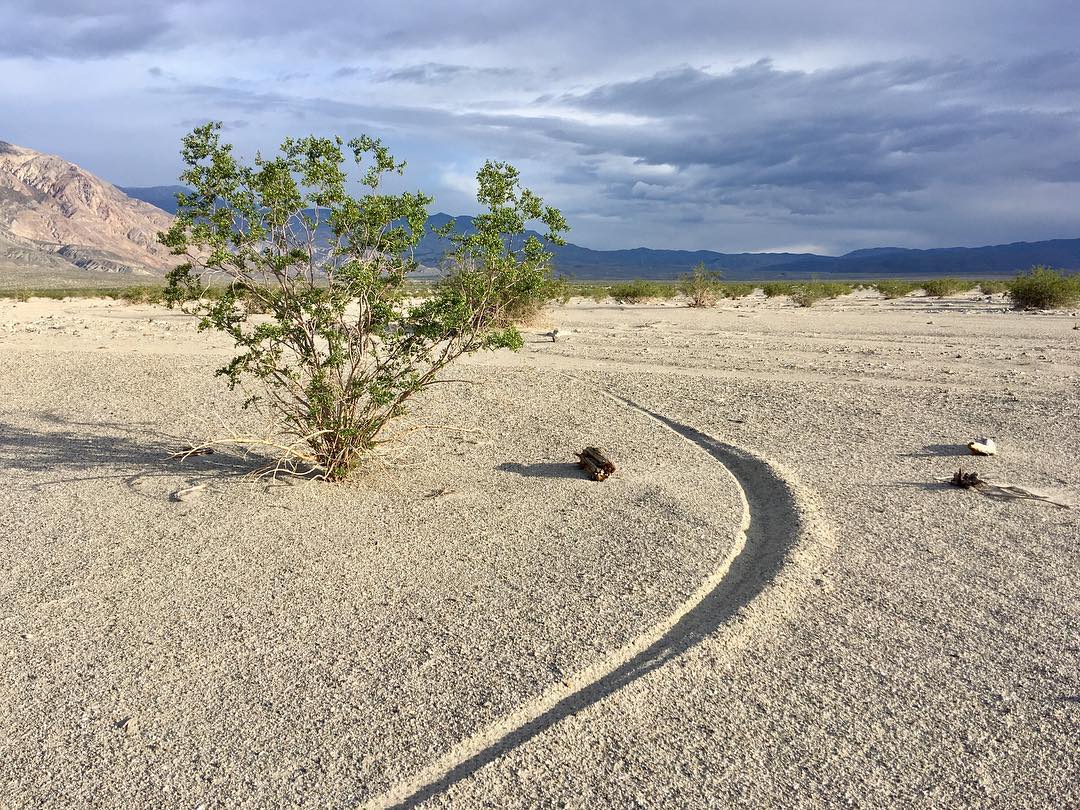That wasn’t the first time that thought went through my head today or the previous days leading up to this moment. But I kept reminding myself that this is what I signed up for and all this was the realization of the countless hours of planning that I put into this trip over the winter. And here I found myself, pedaling my loaded bike up a 5000 foot pass on a rough and sandy road with a stiff wind blowing against me at a 45 degree angle. “Damn, this is hard.”, I thought again as one stroke after another I slowly made progress up the pass.
Several months previous I was in the throws of midwinter cabin fever, dreaming of the desert and pedaling my bike unbridled. Having never been to Death Valley National Park, I soon started looking at maps and devouring articles on this region. At first everything seemed compact and tidy but the more I researched, the more I realized that that wasn’t the case. Instead, I found that I was looking at a park the size of Connecticut with a complex geology and history that until I was actually there I would continue to underestimate.
I started plotting out routes. The first ones covered the entirety of the park before I realized that 500 miles was a bit ambitious so I split my route into northern and southern loops. Eventually I decided that the southern route, basically a lap around the Panamint Range, would be amazing and logistically easy. The primary logistic challenge in this region being water, the southern loop provided water each day so that I wouldn’t have to carry as much as the northern loop required. Any chance for a lighter bike is welcomed but the southern loop held so much more appeal than that.
The southern loop also held appeal scenically, geologically, and appeared to team with human history. Being a fan of all these things, especially history, I figured I’d struck gold with this route (and I probably did). However, the nature of adventure requires flexibility and the ability to pivot quickly and decisively.
About two weeks before my departure I became lightly involved with the Orogeny Project which aims to connect an offroad mountain bike route from Alaska to Baja California.
